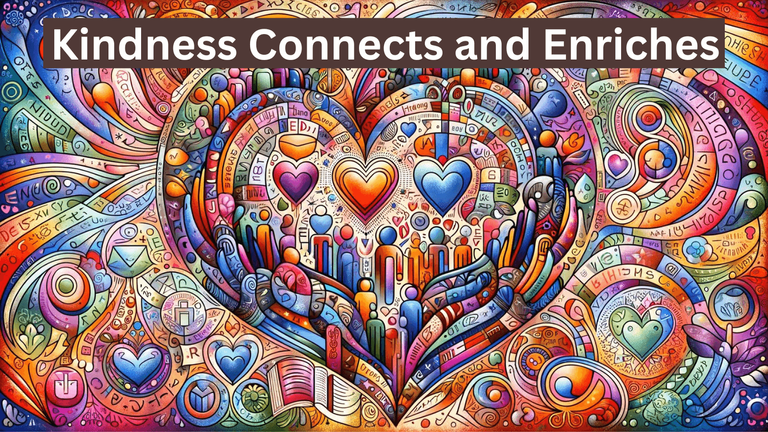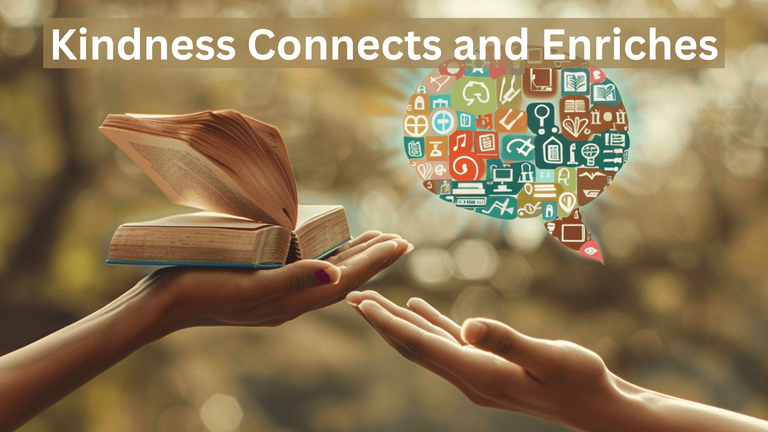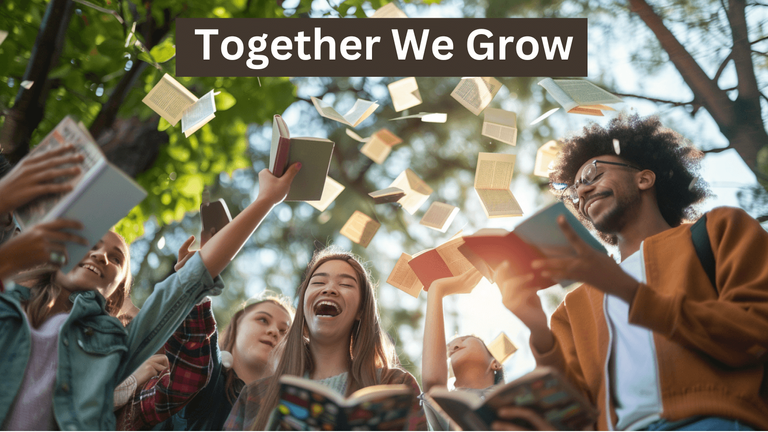Kindness Can Improve Our Vocabulary and Language Skills
Kindness is not just about being nice to others. Its impact extends beyond interpersonal relationships. Studies show that being kind can help improve our vocabulary. By delving into the realm of kindness, we not only uplift others but also enrich our language skills.

Exposure to New Experiences
Stepping into new environments has long been recognized as a powerful way to enhance learning experiences. Research in transformative education, as discussed in the article "The Seven-Step Learning Journey," shows that by immersing ourselves in unfamiliar settings, we can broaden our perspectives, challenge our beliefs, and grow personally.
By stepping out of our comfort zones, we can expand our thinking, connect with others, and develop personally. Trying new things can lead to valuable insights and a deeper understanding of ourselves and the world. Here's how:

- Increased Social Interaction: Engaging in acts of kindness often involves communicating with others, whether it's expressing gratitude, offering help, or simply engaging in conversation. This increased social interaction provides opportunities to learn new words and phrases from others.
Research published by the Journal of Positive Psychology has shown that engaging in acts of kindness strengthens social bonds and fosters a sense of community. When we participate in acts of kindness, we are more likely to engage in conversations with diverse groups of people. Such interactions expose us to a variety of vocabulary and linguistic styles, thereby expanding our vocabulary.

Contextual Learning: Kindness often involves real-life situations where language skills are put into practice. Whether you're offering assistance, expressing gratitude, or engaging in small talk, these contextual learning experiences reinforce language comprehension and retention.
These experiences help us to practice and improve our language skills, reinforcing our language proficiency.
Cultural Awareness:Kindness transcends cultural and linguistic barriers. By interacting with individuals from diverse backgrounds through acts of kindness, you can gain exposure to different languages, dialects, and cultural nuances, thereby broadening your language skills and cultural awareness.
- Empathy and Understanding: Acts of kindness often require understanding and empathy towards others' situations. As you empathize with others, you may encounter new perspectives and experiences, leading to the discovery of new words or phrases that describe these emotions or situations.
Empathy, a fundamental aspect of kindness, plays a crucial role in language development. Studies by the American Psychological Association have indicated that empathizing with people from various backgrounds helps us understand different perspectives, leading to enriched language comprehension and expression.
This connection with diverse viewpoints fosters a deeper understanding of languages, cultural nuances, and communication styles, ultimately enhancing our ability to comprehend and express ourselves effectively.

- Reading and Learning:Kindness often involves reading about others' experiences, whether it's in articles, books, or personal stories. This exposure to different texts and narratives can expand our vocabulary as we encounter new words and expressions within these materials.
This practice not only plays a crucial role in improving our language skills, but it also significantly enriches our ability to comprehend a wide range of viewpoints and feelings.
- Reflection and Self-Expression:Engaging in acts of kindness can also lead to self-reflection and introspection. As we reflect on our own actions and feelings, we may search for words to articulate our thoughts more effectively, thus enriching our vocabulary.
Through this process of self-reflection and introspection, we may find ourselves pondering more deeply, resulting in an expanded vocabulary as we strive to convey our thoughts and feelings more precisely.
Positive Relationships
- Cultivating Positive Relationships: Kindness fosters positive relationships, and strong relationships often involve meaningful conversations. Through these interactions, we may pick up new words and phrases from those we connect with.
Communication is important for people to connect and learn languages. It helps build relationships and improve language skills.
- Improving vocabulary through fun activities:Engage in activities you care about, like volunteering, to learn specialized terms in real-life situations, enhancing retention and language skills.
Whether it's working at the local soup kitchen, advocating for animal rights, or joining a community outreach program, acts of kindness immerse you in new environments and conversations. You'll naturally encounter terms and phrases related to that field. Plus, learning words in a practical context, where they have emotional resonance, helps them stick in your memory. So, not only will you be making a positive impact, but you'll also be flexing your language skills!

Conclusion
Being kind helps improve vocabulary by creating good relationships and helping us learn new words. Kindness shapes who we are and helps us learn more words. Embracing kindness in daily interactions can nurture positive relationships and help us enrich our language skills.
*Images created using MidJourney, Dal-E, and Canva; I hold a commercial license for each.
#kindness #cwh #dreemkindness #dreemforlife #ecency #dreemport #hivekindness #kindnesschallenge #kindnessmatters #pob #wellnessdecency